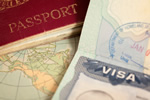Healthcare options for expats in the Philippines

Healthcare options for expats in the Philippines
Given the cost of living in the Philippines is inexpensive to put it mildly, the weather is sunny and hot in spite of a few typhoons and Filipinos are amongst the friendliest people in the world bar none, it’s no surprise the Southeast Asian archipelago’s popularity is increasing, especially amongst older expatriates. Whether new arrivals come direct from their home countries or relocating from mainland Southeast Asia, the islands are busy re-establishing themselves as a retirement hub.
The availability of efficient, affordable healthcare is often the main expat concern when choosing one destination over another in the same region. Whilst expatriates from the UK don’t expect (and possibly don’t want) an NHS-style setup, those from the USA are mostly concerned about replacements for America’s Medicare provisions. Again, the Philippines wins out over neighbouring countries due to its varied healthcare options as well as the affordability of health insurance as well as treatments.
Local health cards are available to expats as well as citizens, with the average premium rate at around Php 670 a month for coverage up to Php 80,000. Online price comparison gives the best deal, with these cards covering either all or most hospital and medical bills dependent on the level of cover chosen. The government also offers the ultra-reliable PhilHealth insurance to long-stay retired expats as well as citizens, with coverage of between 50 and 70 per cent of hospital bills.
As with healthcare insurance the world over, reading and understanding the small print is essential in getting the coverage needed, especially in the case of pre-existing conditions and age-related premium increases. Getting answers to your questions in writing is possible, but you may have to insist, and having private health screening before applying for medical insurance is the best idea, even although medical tests come as free when applying for health insurance. If there’s a problem, comparing the two sets of results can be useful.
One thing to watch out for is price gauging along the lines that foreigners are wealthy and can afford higher premiums. Of course, in the real world, this isn’t only untrue as a generalisation, it’s also mercenary and unprincipled. Should you realise you’re being set up in this way, you have two options – bargain like a professionals or simply walk away. You should also remember that PhilHeath demands a down payment for hospital treatment which will be deducted from your final bill. All told, the Filipino system is straightforward and reliable enough for the majority of expat-related needs and is far easier to negotiate as well as far less expensive than other countries’ foreigner-aimed healthcare provisions.
Related Stories:
- Is Kuwaitization the unintended result of the oil price crash? - July 20, 2020
- Expats in Malaysia still banned from overseas travel - July 17, 2020
- HSBC Asia to cut back on internal expat relocations - July 16, 2020
- Tips on integrating for newly-arrived expats - July 15, 2020
Latest News:
- Tips on a trouble-free relocation as an expat overseas - July 20, 2020
- Expats find peace in the covid-19 refuge of Dahab town - July 20, 2020
- Is Kuwaitization the unintended result of the oil price crash? - July 20, 2020
- Expats unhappy abut changes to Korean points-based visa system - July 17, 2020
- Chiang Mai and Bangkok no longer bargain locations for expats - July 17, 2020
- Expats in Malaysia still banned from overseas travel - July 17, 2020
- Vietnam welcomes expats to its safe, affordable lifestyle - July 16, 2020
- Asian tiger economies reach out to expats in Hong Kong - July 16, 2020
- HSBC Asia to cut back on internal expat relocations - July 16, 2020
- Tips on integrating for newly-arrived expats - July 15, 2020


